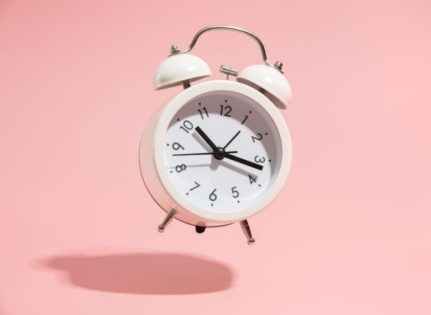
If you’ve been trying to become pregnant, you’ve probably realized that conceiving is not always a linear journey. While we were taught that sex between a man and a woman leads to pregnancy, many of us weren’t given all the facts regarding the likelihood of conception. According to the American Pregnancy Association, a healthy twenty-year-old only has a 30% chance of conceiving within the first cycle. By the age of thirty, this percentage decreases to 20% each month. While the length of time spent trying to become pregnant improves the chance of conceiving, it is typically a longer process than many of us realize. To help promote higher chances of conceiving, we’re explaining the importance of timing in getting pregnant.
Know Your Cycle
Becoming pregnant is highly dependent on timing, so in order to know the best time to conceive, start by knowing your cycle. By tracking your menstrual cycle, you can ultimately identify your fertile window, which is when you’re most likely to get pregnant after sex. Cycles vary from woman to woman, but typically a normal range is anywhere from 21 to 34 days, with the average duration being 28-32 days. Day 1 of your cycle is the day you start your period, and by the halfway point of your cycle, a follicle-stimulating hormone in your brain signals the ovaries to prepare an egg for fertilization. If you’re intent on becoming pregnant, knowing your cycle, and identifying any irregularities early on can all help improve your chances of conceiving.
Find Your Fertile Window
Once you have a basic understanding of how your cycle operates, you can pinpoint your fertile window, the six-day stretch that precedes ovulation. This generally takes place around day 8 of your cycle. At this time, estrogen levels soar in preparation to support a possible pregnancy. As we previously mentioned, timing is everything when it comes to becoming pregnant. Experts recommend having sex daily or every other day during your fertile window, even though you haven’t begun ovulating. This is because sperm has a life span of three days, so by having sex before you ovulate, the sperm has a higher chance of fertilizing the egg at the perfect moment.
Because finding the fertile window is key to getting pregnant, it’s important to be able to identify it, even if you have irregular cycles. Other indications of your fertile window include the presence of cervical mucus, a vaginal discharge that is translucent, often resembling egg whites. There are other tools you can use to help you find your fertile window. Ovulation kits, trackers, calendars, and recording your basal body temperature all may help you find the best time for you to conceive.
The Takeaway
While two healthy partners are a great place to start when it comes to creating a pregnancy, in many cases, it takes a little more thought, planning, and preparation. If you’ve been trying to conceive, take some time to track your schedule and find your fertility window. While results aren’t always immediate, the chances of getting pregnant generally improve over time. Still struggle after a year of regular, well-timed, unprotected sex? Call Carolinas Fertility Institute to discuss your fertility options.
Talk to A Fertility Expert
If you have questions or concerns about what may be impacting your fertility, reach out to Carolinas Fertility Institute today. We offer a wide variety of services, from fertility evaluations to In Vitro fertilization. Contact us today to schedule an initial consultation by calling our Charlotte office at (844) 686-2233 or our office in the Triad at (336) 448-9100.